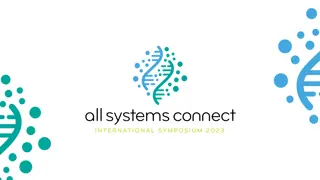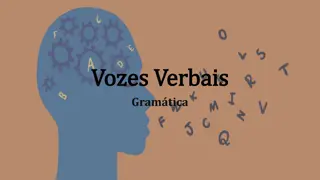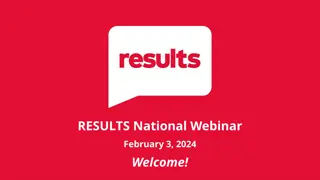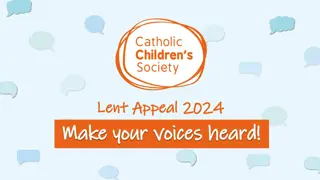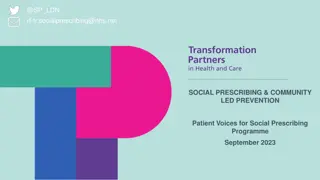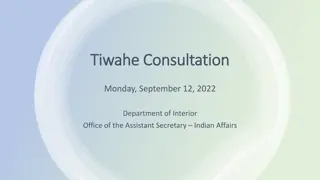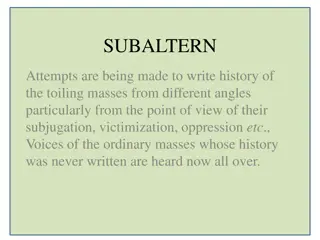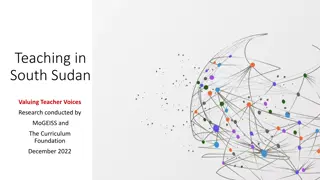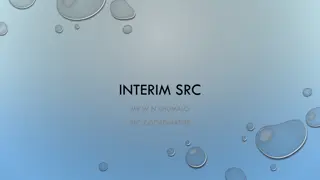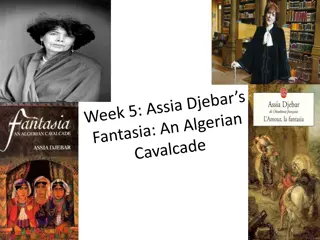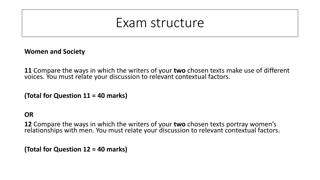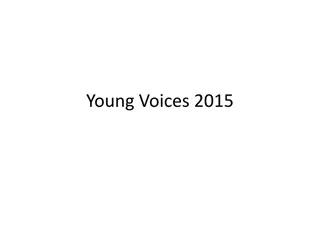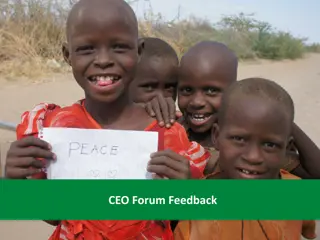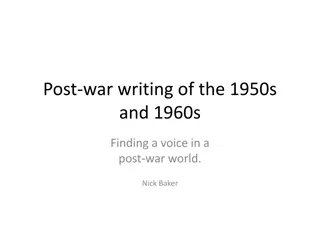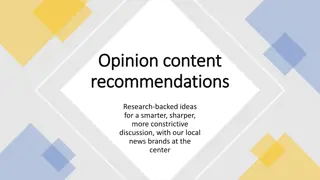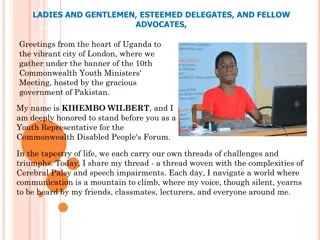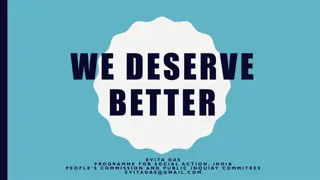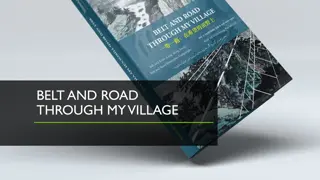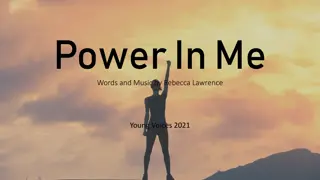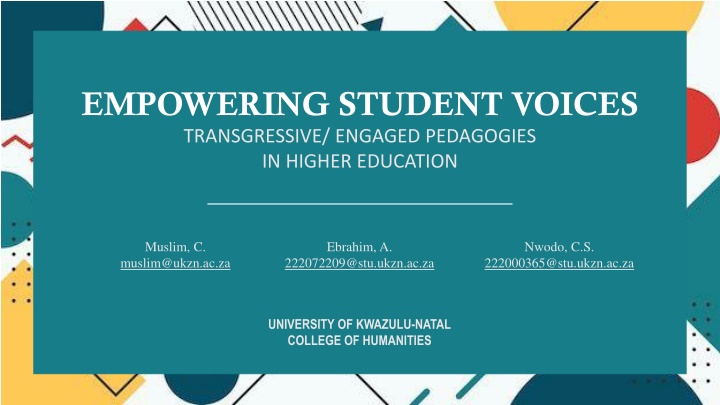
Empowering Student Voices through Transgressive Pedagogies in Higher Education
Explore the impact of student-centered, transgressive teaching approaches in higher education, focusing on empowering student voices, unconventional assessments, and self-reflection. Challenges, risks, and growth opportunities are discussed, emphasizing the importance of inclusivity and empowerment.
Download Presentation

Please find below an Image/Link to download the presentation.
The content on the website is provided AS IS for your information and personal use only. It may not be sold, licensed, or shared on other websites without obtaining consent from the author. If you encounter any issues during the download, it is possible that the publisher has removed the file from their server.
You are allowed to download the files provided on this website for personal or commercial use, subject to the condition that they are used lawfully. All files are the property of their respective owners.
The content on the website is provided AS IS for your information and personal use only. It may not be sold, licensed, or shared on other websites without obtaining consent from the author.
E N D
Presentation Transcript
EMPOWERING STUDENT VOICES TRANSGRESSIVE/ ENGAGED PEDAGOGIES IN HIGHER EDUCATION Muslim, C. muslim@ukzn.ac.za Ebrahim, A. Nwodo, C.S. 222072209@stu.ukzn.ac.za 222000365@stu.ukzn.ac.za UNIVERSITY OF KWAZULU-NATAL COLLEGE OF HUMANITIES
THE FRAMEWORK Framing of the discussion Transgressive/engaged teaching (hooks 1994); student centred assessments This approach does not shift the pass rate Does it have an impact on the educative journey? AMS is part of the journey The student voice on transgressive/engaged pedagogy Challenges & risk towards growth Approach from a differently abled lens
FROM SCEPTIC TO ACTIVE ENGAGEMENT there is a sense of mutual responsibility for learning, students get scared that you are now not the captain working with them, but that you are after all just another crew member and not a reliable one at that (hooks,1994:14) method which involves them in their learning process through meaningful learning activities that are relevant and authentic, and which requires them to critically think about what they are doing and who they are. The production of knowledge requires the active participation of the learner beyond the teacher-teaches and learner-learns pedagogy. (Prince,2004)
UNCONVENTIONAL ASSESSMENTS: Beyond Rote Learning NAVIGATION: Challenges of Transgressive Pedagogy Blogs Academic Reflexive Essays Only one third of the class participated and their input was incorporated into the exam design (Muslim, 2024: 12) Reflection proved to be a powerful tool, helping connect the various concepts, readings, and discussions into a coherent and meaningful whole Discomfort with different styles Students may have preferred tests Unequal participation
THE EMPOWERMENT OF THE STUDENT VOICE THROUGH SELF-REFLECTION & AGENCY The achievement of a student-centered process imbibes the acquisition and capitalization of knowledge Speaking and writing are act of resistance that encompass the underlying spirit of inclusion, empowerment and agency (Alshammari, 2022) The student-centered transgressive teaching apporoach priviliges the voices of the differently-abled through narrative scripting Stories are just data with Soul (Nadar, 2011) The strength of the reflexive essay lies in its enablement of students to draw on and apply prior gained knowledge
ENHANCED STUDENT ENGAGEMENT & THE DIVERSIFICATION OF KNOWLEDGE PRODUCTION Students arrive at Higher Education institutions with specific positionalities and a sense of indigenous knowledge (Muslim, 2024: 21) Academic blogs as assessment tools allow for the introspection of knowledge of interest The function of content is to contribute to the learning process and acquisition of skills rather than the memorization of concepts (Wright, 2011) The role of the teacher shifts to a collaborative appeal Learning through collaboration instruments permits the facilitation, understanding and upgrading of skills of underperforming students (Muslim, 2024: 8)
CONCLUSION Student-centered and transgressive teaching has modelled successful academic outcomes and self affirming qualities I learned much from my teachers, more from my companions and even more from students and the principles of transgressive and engaged pedagogy (Rabbi Yehuda ha-Nasi) The success of an approach that so heavily invests in student centering is dependent upon the responsivity, experience and knowledge base of its guide, designer and facilitator


